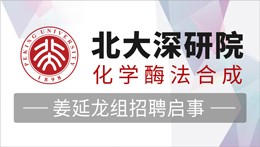当前位置:
X-MOL 学术
›
Journal of Occupational Health Psychology
›
论文详情
Our official English website, www.x-mol.net, welcomes your
feedback! (Note: you will need to create a separate account there.)
How strategies of selective optimization with compensation and role clarity prevent future increases in affective strain when demands on self-control increase: Results from two longitudinal studies.
Journal of Occupational Health Psychology ( IF 5.9 ) Pub Date : 2022-04-25 , DOI: 10.1037/ocp0000328
Stefan Diestel 1
Journal of Occupational Health Psychology ( IF 5.9 ) Pub Date : 2022-04-25 , DOI: 10.1037/ocp0000328
Stefan Diestel 1
Affiliation
In modern working environments effective strategies for regulating goal-directed behavior and allocating and investing limited resources (e.g., selection, optimization, and compensation [SOC] strategies) should enable employees to cope up with job demands that require volitional self-regulation, thereby preventing strain over time. However, theoretical insights suggest that the beneficial impact of SOC strategies on psychological health depends on the degree to which employees experience clarity in their job role. To understand how employees stabilize their psychological health when demands increase over time, I examine interaction effects of changes in self-control demands (SCDs), SOC strategies and role clarity at an earlier point in Time on changes in affective strain in two longitudinal samples from different occupational and organizational settings (international private bank: N = 389; heterogenous sample: N = 313, 2 year lag). In line with recent conceptualizations of chronic forms of distress, affective strain involved emotional exhaustion, depressive symptoms, and negative affect. In support of my predictions, structural equation modeling revealed significant three-way interactions of changes in SCDs, SOC strategies and role clarity on changes in affective strain in both samples. In particular, the positive relationships between changes of SCDs and changes in affective strain were jointly buffered by SOC strategies and role clarity. The present findings offer implications for stabilizing well-being when demands increase over long time periods. (PsycInfo Database Record (c) 2022 APA, all rights reserved).
中文翻译:

当自我控制需求增加时,具有补偿和角色明确性的选择性优化策略如何防止未来情感压力的增加:来自两项纵向研究的结果。
在现代工作环境中,用于规范目标导向行为以及分配和投资有限资源的有效策略(例如,选择、优化和补偿 [SOC] 策略)应使员工能够应对需要自主自我调节的工作需求,从而防止随着时间的推移紧张。然而,理论见解表明,SOC 策略对心理健康的有益影响取决于员工对其工作角色的清晰程度。为了了解当需求随时间增加时员工如何稳定他们的心理健康,我研究了自我控制需求(SCD)变化的交互效应,在来自不同职业和组织环境的两个纵向样本(国际私人银行:N = 389;异质样本:N = 313,滞后 2 年)中,SOC 策略和角色明确性在较早的时间点对情感压力的变化。根据最近对慢性痛苦形式的概念化,情感紧张包括情绪衰竭、抑郁症状和负面影响。为了支持我的预测,结构方程模型揭示了两个样本中 SCD、SOC 策略和角色清晰度变化对情感应变变化的显着三向相互作用。特别是,SCD 的变化与情感应变的变化之间的正相关关系受到 SOC 策略和角色明确性的共同缓冲。目前的研究结果为在长期需求增加时稳定福祉提供了启示。(PsycInfo 数据库记录 (c) 2022 APA,保留所有权利)。
更新日期:2022-04-25
中文翻译:

当自我控制需求增加时,具有补偿和角色明确性的选择性优化策略如何防止未来情感压力的增加:来自两项纵向研究的结果。
在现代工作环境中,用于规范目标导向行为以及分配和投资有限资源的有效策略(例如,选择、优化和补偿 [SOC] 策略)应使员工能够应对需要自主自我调节的工作需求,从而防止随着时间的推移紧张。然而,理论见解表明,SOC 策略对心理健康的有益影响取决于员工对其工作角色的清晰程度。为了了解当需求随时间增加时员工如何稳定他们的心理健康,我研究了自我控制需求(SCD)变化的交互效应,在来自不同职业和组织环境的两个纵向样本(国际私人银行:N = 389;异质样本:N = 313,滞后 2 年)中,SOC 策略和角色明确性在较早的时间点对情感压力的变化。根据最近对慢性痛苦形式的概念化,情感紧张包括情绪衰竭、抑郁症状和负面影响。为了支持我的预测,结构方程模型揭示了两个样本中 SCD、SOC 策略和角色清晰度变化对情感应变变化的显着三向相互作用。特别是,SCD 的变化与情感应变的变化之间的正相关关系受到 SOC 策略和角色明确性的共同缓冲。目前的研究结果为在长期需求增加时稳定福祉提供了启示。(PsycInfo 数据库记录 (c) 2022 APA,保留所有权利)。

































 京公网安备 11010802027423号
京公网安备 11010802027423号